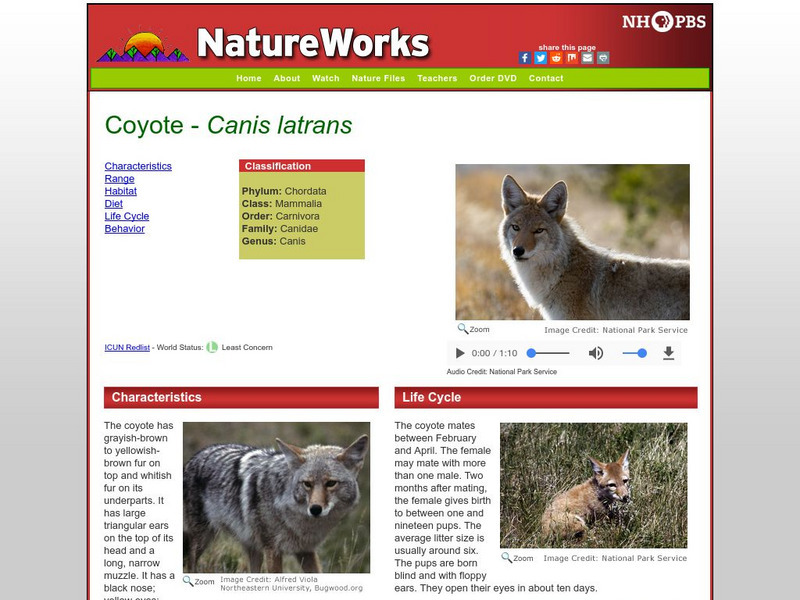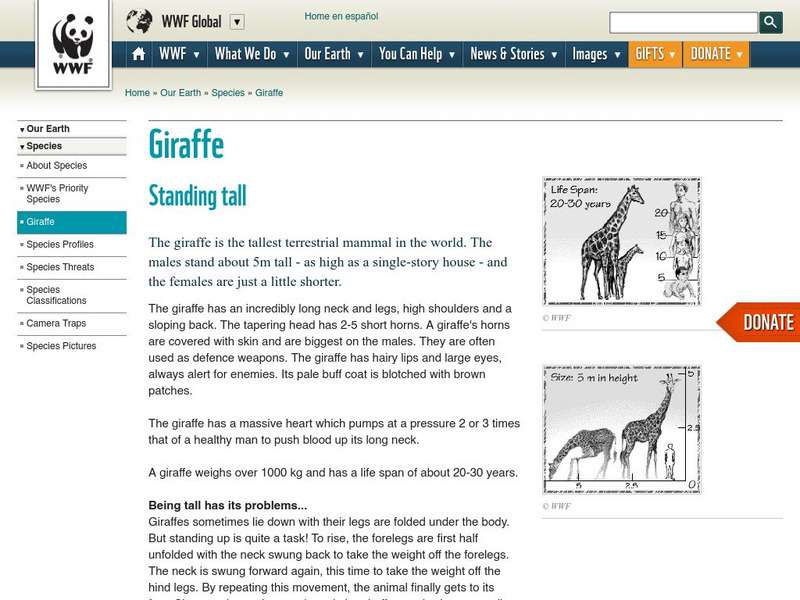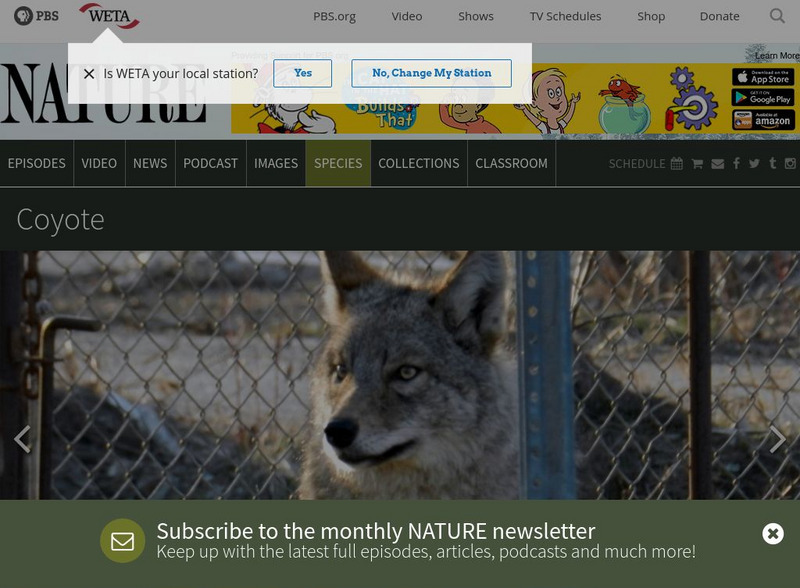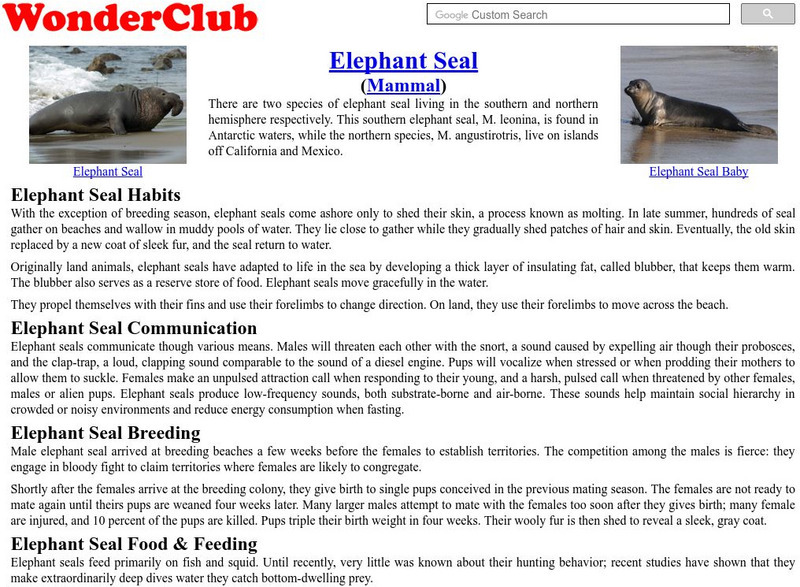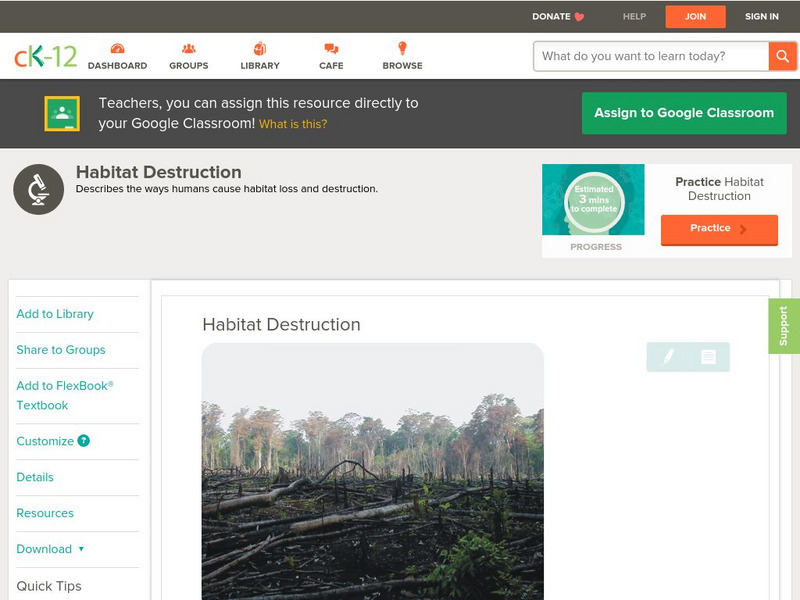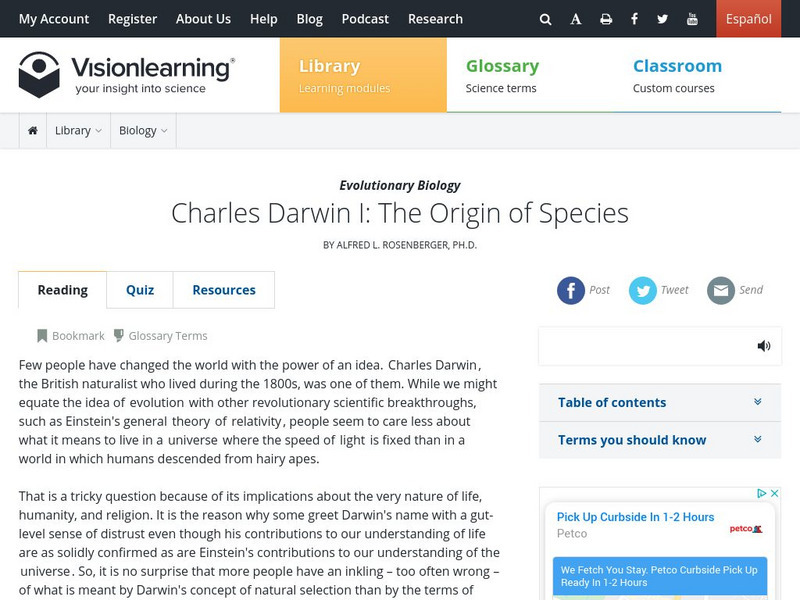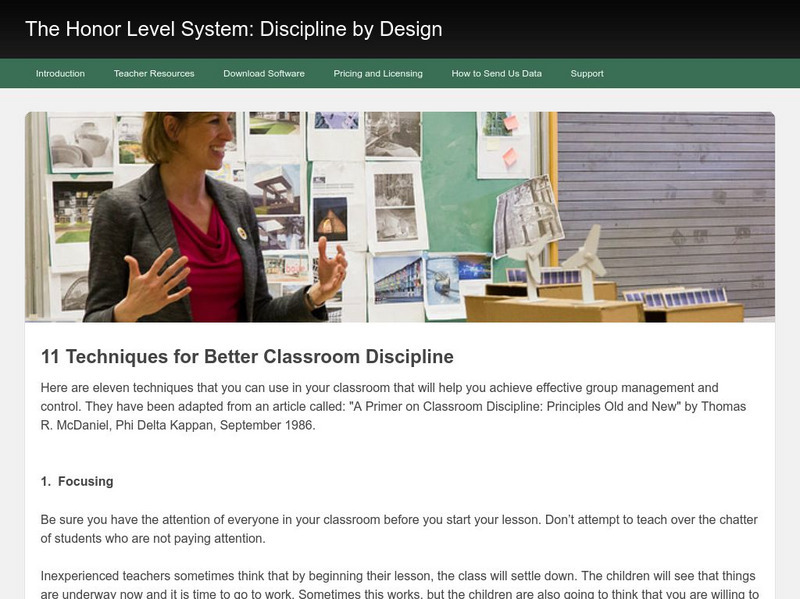Other
May Institute: Helping Children With Autism Spectrum Disorder Adjust to Change
This article contains several strategies to help students adjust to change. This article is targeted to those who work with autistic students but the strategies are appropriate for all students who struggle with changes and transitions.
PBS
Nh Pbs: Nature Works: Polar Bears
This site created by NatureWorks focuses on the Polar Bears. The content of this resource includes a look at this species' characteristics, range, habitat, diet, behavior and life cycle.
Sea World Parks & Entertainment
Sea World: Baleen Whales
Outlines the characteristics of the baleen whale, including classification, habitat, behaviors, and conservation. Helps students identify whales with a list of "Books for Young Readers." Information at a level of upper intermediate or...
PBS
Nh Pbs: Nature Works: Coyote
Explore the world of the Coyote through this educational resource. This site features information on coyotes ranging from characteristics, diet, reproduction, range, habitat, and behavior.
World Wildlife Fund for Nature
World Wildlife Fund: Giraffe
This resource provides an introduction to giraffe anatomy and behavior.
PBS
Pbs Nature: Coyote
What do you know about coyotes? Learn more about how adaptable this animal is to new surroundings when you check out this informative resource. Explore this website to find more facts and information ranging from what these animals eat...
Sea World Parks & Entertainment
Sea World: Clydesdales
Outlines the characteristics of horses and the Clydesdale breed, including classification, history, behaviors, and diet. Information at a level of upper intermediate elementary but easily adaptable for all teachers.
Sea World Parks & Entertainment
Sea World: Animal Bytes: Gorillas
This site from SeaWorld/Busch Gardens provides a wealth of information regarding gorillas. Content includes a focus on gorilla habitats and distribution, physical characteristics and special adaptations, senses, behavior, diet,...
Sea World Parks & Entertainment
Sea World: Polar Bears
Outlines the characteristics of the polar bear, including classification, habitat, behaviors, and conservation. Helps students identify with polar bears with a list of "Books for Young Readers." Information at a level of upper...
Sea World Parks & Entertainment
Sea World: Tigers
This Sea World article outlines the characteristics of the tiger, including classification, habitat, behaviors, and conservation. Students can continue to learn from a list of books for young readers. Information is upper intermediate or...
Other
Agriculture in the Classroom Sask: The Arctic Fox
This thorough site contains a wide variety of information about the Arctic fox. Topics include where it lives, home adaptations, appearance, the young, food, enemies protection, and interesting facts.
Other
Wonder Club: Elephant Seal
A comprehensive site that contains information on habits, breeding, food, hunting, and special adaptations. Key bullet-pointed facts are also provided for size, breeding, and lifestyle.
PBS
Pbs Learning Media: Wild in the City
Learn about how wild parakeets have adapted to city life in this WILD TV video segment.
CK-12 Foundation
Ck 12: Life Science: Habitat Destruction
[Free Registration/Login may be required to access all resource tools.] From a human point of view, a habitat is where you live, go to school, and go to have fun. Your habitat can be altered, and you can easily adapt. Most people live in...
Alabama Learning Exchange
Alex: Surviving in the World!
After learning about the survival traits of the chameleon, students will work in groups to research the survival traits of other animals on the Internet and will create a slide show using the collected information to share with the...
TED Talks
Ted: Ted Ed: Evolution's Gift of Play, From Bonobo Apes to Humans
Learn about our similarity to apes, and how they solve their problems so peacefully at times but humans, the more "advanced" species, can behave so primitively. [7:02]
Vision Learning
Visionlearning: Biology: Charles Darwin I: The Origin of Species
Instructional module focusing on the early work of Charles Darwin. Discusses Darwin's key role in supporting and describing the theory of evolution as driven by natural selection. Site also includes an interactive practice quiz and links...
Society for Science and the Public
Science News for Students: Wet Dog Physics
Describes the physics behind animals' ability to dry themselves by shaking to remove water.
Smithsonian Institution
National Museum of Natural History: Hall of Mammals: Pronghorn
Brief overview of the pronghorn and accompanying photos demonstrate the physical adaptations that allow this animal to be one of the fastest mammals.
Other
Discipline by Design: 11 Techniques for Better Classroom Discipline
Here are eleven techniques that you can use in your classroom that will help you achieve effective group management and control. They have been adapted from an article called: "A Primer on Classroom Discipline: Principles Old and New" by...
Other
Creating Systems to Reinforce Creativity
Although this article was written from a business perspective, the ideas throughout can easily be adapted to the classroom. The formula for creative output is explained and is a good way to encourage creativity among your students.
Smithsonian Institution
National Museum of Natural History: Hall of Mammals: Crabeater Seal
Brief overview of the crabeater seal and accompanying photos demonstrate the physical adaptations that allow this animal to eat and survive.
Smithsonian Institution
National Museum of Natural History: Hall of Mammals: Vampire Bat
Brief overview of the vampire bat and an accompanying photo demonstrate the physical adaptations that allow this animal to eat to survive.
Other
Creating Minds: Creating a Creative Climate
Written from a business perspective, this sites ideas about creating a creative atmosphere can easily be adapted to any classroom.




